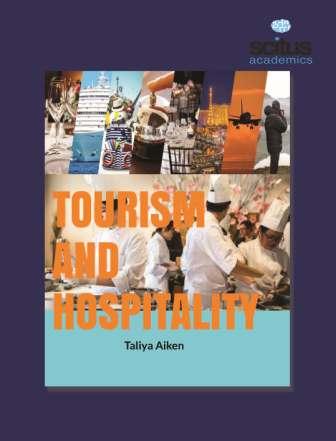The tourism industry is frequently cited as the largest industry in the world, accounting for 10% of the world’s GDP. Tourism is a separate area of activity and a fragment of vital importance in the economic and social life of the majority of countries in the world. The importance of tourism derives from the many benefits and advantages that it brings to any host country. The tourism phenomenon is a particularly complex one. It has implications for the social, political, cultural and economic spheres of activity. However, the real importance of tourism stems from its nature and how it is defined and structured. Tourism contributes to the complete growth and development of a country by helping to build a country’s brand value, image and identity. The tourism industry goes beyond attractive destinations to be an important contributor to economic growth. Tourism is also considered to be an export activity and is unique in that consumers come to the product where it is consumed on-site. The hospitality industry can probably be described as one of the world’s leading commercial enterprises. It is part of a larger business initiative-the tourism industry.
Serving customers well is the primary goal of hospitality businesses, which should focus on creating high-quality environments and services and hiring excellent staff who treat customers with warmth, sympathy and professionalism. This industry provides a range of services ranging from travel arrangements, accommodation facilities, food & beverages to leisure activities, i.e., all the requirements of modern-day travelers who may be traveling for business, pleasure, vacation, adventure, religious or medical treatment. This industry is one of the largest and fastest-growing industries in the world and is affected by economic ups and downs.
This book gives an overview of the structure and scope of the travel/tourism and hospitality industries. The book examines the elements of the tourism industry: transport, accommodation, food and beverage, and attractions. Other topics include the history, political, social and cultural impacts of tourism on local, state and global environments. Readers will learn how tourism adds economic and non-economic value to a country and why it is so important to every country, why every country sees tourism not just as attractive to tourists, but as a platform that promotes economic growth and complete development. Why is it now gaining recognition and importance as an indicator and a barometer not only of growth and development but also of social and economic factors? Readers will also know how tourism plays such an important role in countries, economies, and how important it is for large-scale growth and development.














csvqj –
order cheap clomiphene tablets get generic clomid online can i get generic clomiphene prices buy generic clomiphene without dr prescription can i buy clomiphene without prescription where to buy clomid without dr prescription can you buy clomid prices
cialis coupons –
This is the kind of advise I recoup helpful.
can flagyl and azithromycin be taken together –
I’ll certainly return to be familiar with more.
lbuxn –
order azithromycin 250mg sale – flagyl over the counter metronidazole 200mg generic
r3pnp –
rybelsus 14 mg uk – cyproheptadine 4 mg pills periactin 4mg pills
90ip6 –
buy generic domperidone – tetracycline 250mg cost flexeril ca
niuph –
propranolol usa – buy generic propranolol methotrexate 5mg for sale
5jqjq –
purchase amoxicillin pills – valsartan tablet order ipratropium 100mcg pill
x4xu7 –
azithromycin 500mg usa – tindamax where to buy nebivolol cost
ujz5y –
buy clavulanate – https://atbioinfo.com/ buy acillin cheap
pr8cy –
nexium order online – nexiumtous nexium us
ein3n –
purchase medex – https://coumamide.com/ losartan 50mg cost
zwyyv –
generic meloxicam – tenderness order mobic 7.5mg without prescription
jx02d –
order prednisone 40mg without prescription – apreplson.com deltasone 10mg oral
ar65l –
free samples of ed pills – where can i buy ed pills buy ed meds online
8j8pm –
buy amoxicillin tablets – combamoxi.com amoxicillin buy online
1ckvo –
buy diflucan pills for sale – click buy diflucan medication
x5jw5 –
cenforce 50mg brand – on this site cenforce 50mg pill
69y7c –
when does tadalafil go generic – https://ciltadgn.com/ tadalafil daily use
c822h –
does cialis lower your blood pressure – https://strongtadafl.com/ cialis 20 mg duration
ConnieTed –
zantac order online – order ranitidine 150mg pill buy ranitidine 300mg online